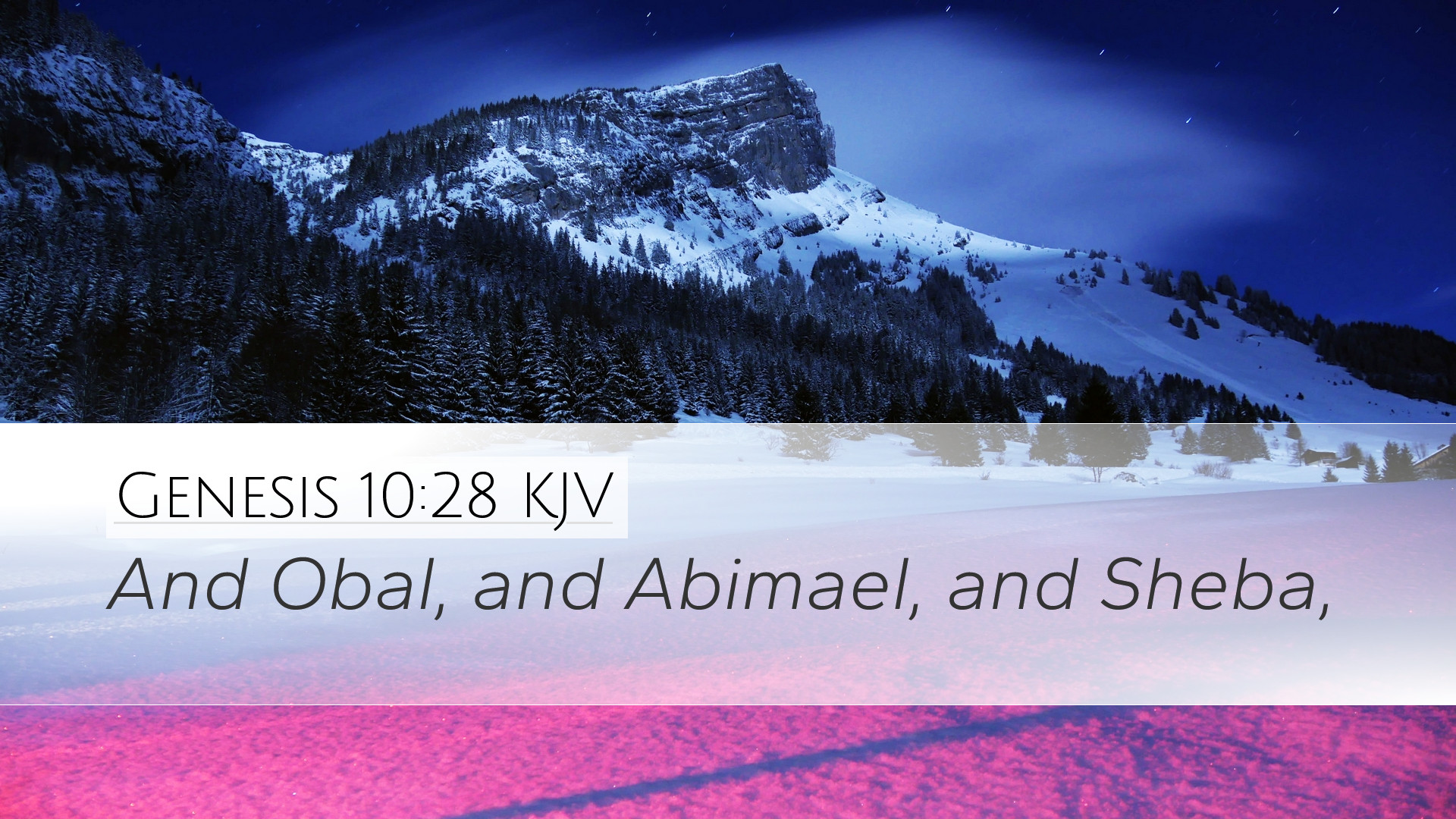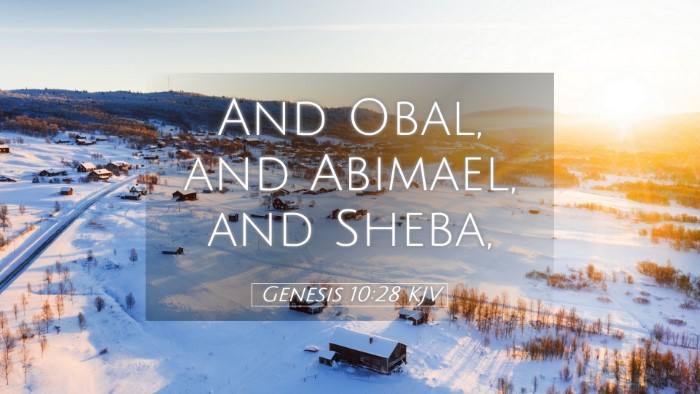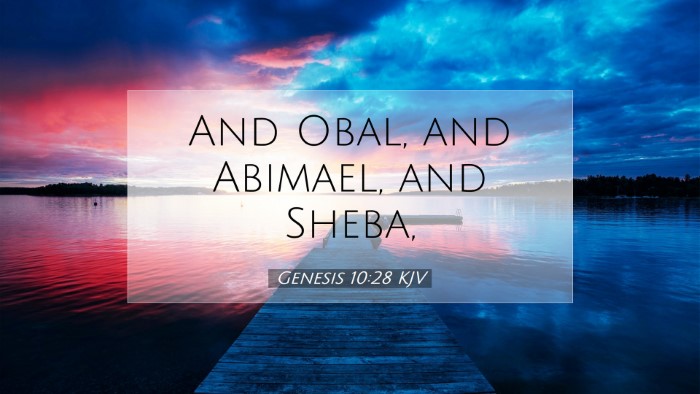Commentary on Genesis 10:28
Verse: Genesis 10:28 - "And Obal, and Abimael, and Sheba."
Introduction
This verse represents a genealogy that is part of the larger narrative of the Table of Nations in Genesis 10. It describes the descendants of Noah’s sons after the Flood and is crucial for understanding the origins of various peoples and nations.
Contextual Analysis
The genealogical records are a common feature in the Old Testament, particularly in the books of Genesis and Chronicles. They serve not only to trace physical lineage but also to establish the identity and destiny of nations in relation to God's unfolding plan.
Matthew Henry's Perspective
Matthew Henry notes that the genealogies in Genesis serve to document the lineage of nations and reveal God’s providential order in human history. In this specific verse, Obal, Abimael, and Sheba are mentioned as descendants of Joktan, which signifies the division of people and languages post-Babel. This emphasizes God’s control over human affairs and the differentiation of nations.
Albert Barnes' Insights
Albert Barnes, in his commentary, explores the significance of the names listed in this verse. Each name can be seen as representative of distinct tribes or communities. For example, Barnes correlates Sheba with the region of Sheba, often thought to be linked to wealth and trade. This denotes the flourishing cultures that arose from these genealogical roots, highlighting the diversity of nations and their respective paths under divine providence.
Adam Clarke's Contribution
Adam Clarke points out that the names Obal and Abimael are less frequently discussed in historical contexts, and he suggests that their mention indicates a broader range of descendants. He emphasizes that the biblical genealogies are not solely historical records but are part of God’s revelation of His purpose through history. In mentioning these names, he invites reflection on the sovereignty of God in propagating humanity after the Flood.
Theological Implications
This brief mention of names carries significant theological weight. The listing of descendants indicates the fulfillment of God’s command to "be fruitful and multiply" (Genesis 1:28). It also underscores the theme of unity and diversity within the creation narrative. Each name represents a family, tribe, or nation that contributes to the global tapestry of humanity.
Diversity in God's Creation
The diversity of nations, initiated through the descendants of Noah, reflects the creative and redemptive purposes of God for humanity. God’s intention was never for humans to live in isolation but to form communities that could interact, trade, and share cultural experiences. This diversity also sets the stage for God’s ultimate plan of redemption through Christ, as symbolized in the book of Revelation where people from every nation gather before the throne (Revelation 7:9).
Humanity's Responsibility
The existence of various nations and tribes brings both opportunities and responsibilities. As these genealogies unfold, believers are called to acknowledge God's sovereignty while actively participating in His mission to share the gospel with every tribe and nation. The mention of Sheba’s association with wealth calls believers to see how material blessings should be utilized for God's glory and the expansion of His kingdom.
Practical Applications
- Understanding Our Roots: The genealogies remind us of our historical and spiritual lineage. Every believer is part of a broader narrative that has been shaped through generations. This context can deepen our faith and inspire us to uphold the values passed down through time.
- Encouragement of Unity: In the face of diversity, these genealogies encourage unity among believers. We must view our differences not as divisions but as facets of God's beautiful creation.
- Global Vision: Pastors and theologians must foster a global vision for the church, understanding that each nation has its own place in the narrative of God’s people. Mission efforts should focus on reaching all nations.
Conclusion
Genesis 10:28, while short and seemingly simple, carries profound insights that challenge believers to recognize the intricate tapestry of God's creation. By reflecting on the genealogies, one is reminded of the diversity of God's people and the call to unity in purpose and mission. Commentators like Henry, Barnes, and Clarke encourage us to delve deeper into these texts, revealing truths that resonate throughout the ages.


